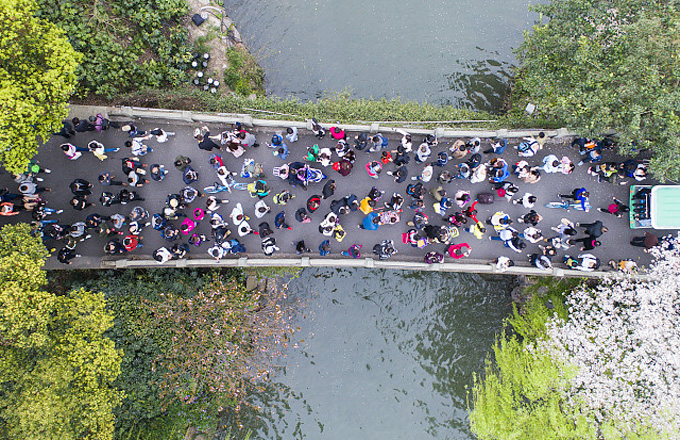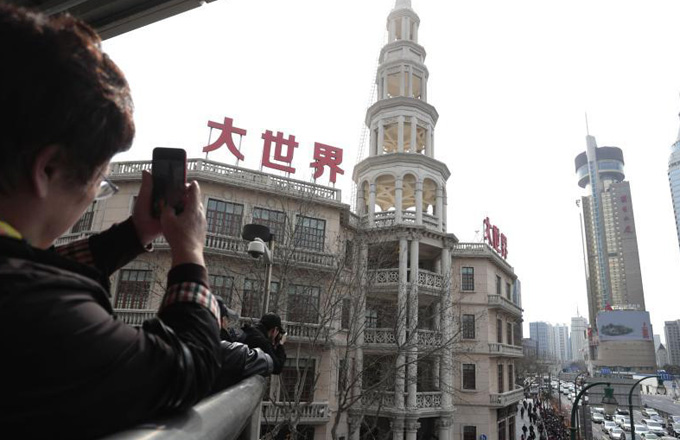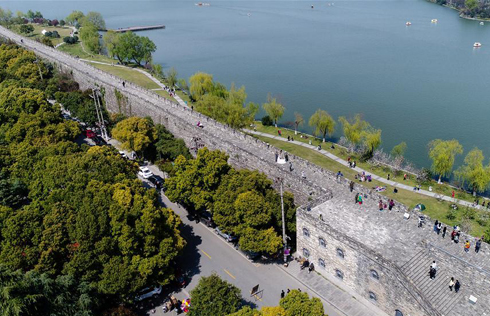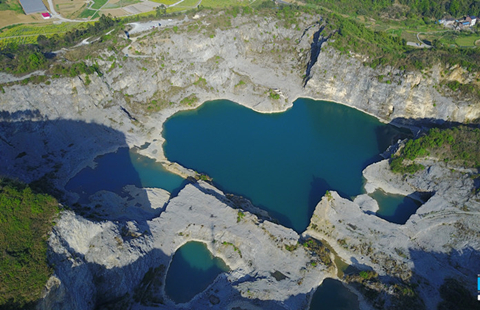

Luo, who lost his wife in the quake five years ago, is an optimist, too.
"I just told myself to look beyond the present. You have to force yourself to keep smiling, even if it's a bitter smile," he said to me, recalling how he went through the most difficult time of his life as we chatted in the newly built Beichuan.
The devastated old town, about 30 km away, is now a fenced-off memorial site. Luo's wife is still believed to be buried underneath the rubble of their collapsed apartment building.
"I was devastated when I realized there was no hope of finding her," he said. "But I couldn't show my sorrow on my face because my son and I both survived and we have to continue to live and move on."
Luo has slowly recovered from the trauma, and his son, now 28, has managed to find a factory job in Chengdu, the provincial capital.
Faced with yet another major quake five years later, Sichuan's people need to draw deep on their characteristic optimism, even though the latest set of quake survivors will need time to recover from their trauma.
As a Sichuan native, I can say optimism is something rooted in our slow and laidback lifestyle. Compared to people from many other parts of China, we take things more easily.
Optimism has already surfaced on the first day of the Lushan quake. Hours after Luo's phone call, I received a text message from my cousin in Chengdu: "Faced with this massive disaster, we must uplift the Sichuan people's traditional optimism and play mahjong for a whole night tonight."
Come on Lushan! Come on Sichuan!













